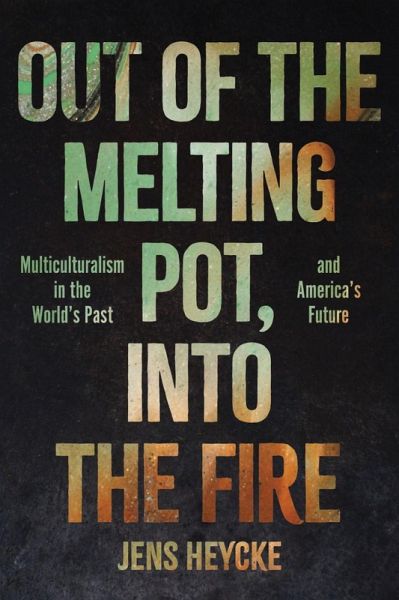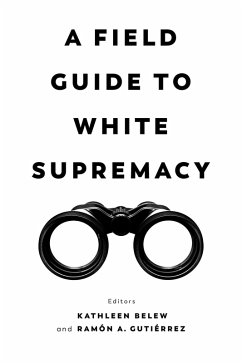
Out of the Melting Pot, Into the Fire (eBook, ePUB)
Multiculturalism in the World's Past and America's Future
Versandkostenfrei!
Sofort per Download lieferbar
16,95 €
inkl. MwSt.
Weitere Ausgaben:

PAYBACK Punkte
8 °P sammeln!
The melting pot has been the prevailing ideal for integrating new citizens through most of America's history, yet contemporary elites often reject it as antiquated and racist. Instead, they advocate multiculturalism, which promotes ethnic boundaries and distinct group identities. Both models have precedents across the centuries, as Jens Heycke demonstrates in a contribution to the debate that incorporates an international, historical perspective.Heycke surveys multiethnic polities in history, focusing on societies that have shifted between the melting pot and multicultural models. Beginning wi...
The melting pot has been the prevailing ideal for integrating new citizens through most of America's history, yet contemporary elites often reject it as antiquated and racist. Instead, they advocate multiculturalism, which promotes ethnic boundaries and distinct group identities. Both models have precedents across the centuries, as Jens Heycke demonstrates in a contribution to the debate that incorporates an international, historical perspective.
Heycke surveys multiethnic polities in history, focusing on societies that have shifted between the melting pot and multicultural models. Beginning with ancient Rome, he demonstrates the appeal of a unifying, syncretic identity that diverse individuals can join, regardless of their ethnic or racial origins. He details how early Islam, with its ideal of an inclusive ummah, integrated diverse groups, and even different faiths, into a cohesive and flourishing society. Both civilizations eventually abandoned their integrative ideals in favor of a multicultural paradigm. The consequences of that paradigm shift are instructive for societies that seek to emulate it.
In the modern era, many nations have implemented multicultural policies like group preferences to compensate for past injustices or current disparities. Heycke examines some notable examples: Yugoslavia, Rwanda, and Sri Lanka. These nations were on a rough trajectory toward ethnic tolerance and comity, a trajectory that multicultural policies altered dramatically. They contrast with Botswana, a country that opposes group distinctions so resolutely that it prohibits the collection of racial and ethnic statistics.
Since World War II, ethnic conflicts have killed over ten million people. But the consequences of ethnic division go far beyond that. Heycke analyzes those consequences in an international statistical survey of ethnic fractionalization. This survey, combined with the extensive historical record of multiethnic societies, illustrates the staggering costs of accentuating group differences and the benefits of a unifying identity that transcends those differences.
Heycke surveys multiethnic polities in history, focusing on societies that have shifted between the melting pot and multicultural models. Beginning with ancient Rome, he demonstrates the appeal of a unifying, syncretic identity that diverse individuals can join, regardless of their ethnic or racial origins. He details how early Islam, with its ideal of an inclusive ummah, integrated diverse groups, and even different faiths, into a cohesive and flourishing society. Both civilizations eventually abandoned their integrative ideals in favor of a multicultural paradigm. The consequences of that paradigm shift are instructive for societies that seek to emulate it.
In the modern era, many nations have implemented multicultural policies like group preferences to compensate for past injustices or current disparities. Heycke examines some notable examples: Yugoslavia, Rwanda, and Sri Lanka. These nations were on a rough trajectory toward ethnic tolerance and comity, a trajectory that multicultural policies altered dramatically. They contrast with Botswana, a country that opposes group distinctions so resolutely that it prohibits the collection of racial and ethnic statistics.
Since World War II, ethnic conflicts have killed over ten million people. But the consequences of ethnic division go far beyond that. Heycke analyzes those consequences in an international statistical survey of ethnic fractionalization. This survey, combined with the extensive historical record of multiethnic societies, illustrates the staggering costs of accentuating group differences and the benefits of a unifying identity that transcends those differences.
Dieser Download kann aus rechtlichen Gründen nur mit Rechnungsadresse in A, D ausgeliefert werden.













